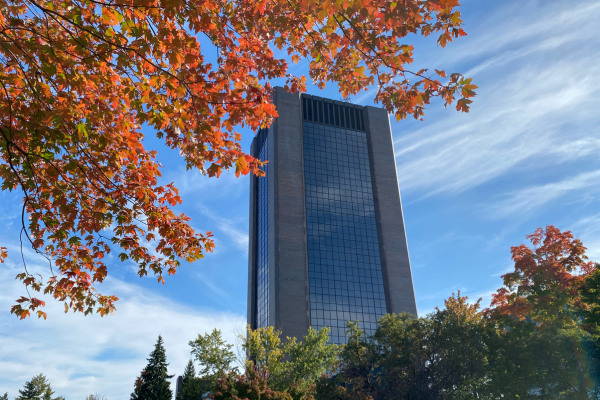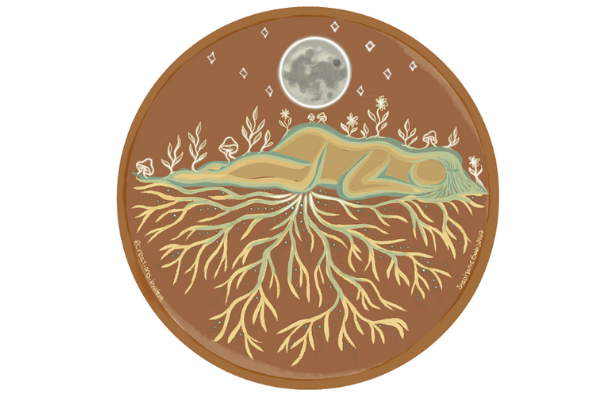The impact of global warming has become increasingly conspicuous as deadly floods and wildfires constantly take over the attention of news media and the public. The quest for countries to take adequate actions has also become more necessary. This November, heads of countries and titans of industries gathered at the COP26 climate summit, seeking to limit the rise in global temperature to 1.5 degrees Celsius above the preindustrial level. To attain this ambitious goal, countries must take concrete steps in addressing deficiencies within their current practices. While these problems seem beyond our reach as individuals, there are still many things we can do to contribute to this fight against global climate change.
This year’s holiday season has officially begun. With the alleviation of COVID-19 restrictions, many people are looking to take advantage of this chance to refurnish their surroundings and themselves to sweep away past distress. Under this mentality, it is easy for us to be caught up in buying too many things we don’t actually need. But reckless and excessive consumption behaviors are large offenders to our environment. The production and transportation of mass-produced goods generate an enormous amount of hazardous waste and greenhouse gases that weighs heavily upon the ecosystem, resulting in irreversible damages. Therefore, we must understand the implications of our consumption and pay more attention when making our decisions. The following are some suggestions for us to become responsible consumers.
Researching the Business
Due to the lack of awareness and supervision, companies that prioritize economic interests can easily hide their pollutions from plain sight. This makes individual consumers unknowingly become indirect contributors to environmentally destructive activities. As a result, it is necessary to inspect the company before making our investments.
Looking for a fair trade logo is the easiest way to determine whether a company has an equitable and sustainable business model. In order to be certified, the company must go through a series of stringent evaluations and meet certain ethical and behavioural standards. As Carleton students, we are already off to a good start: the university became a fair trade designated campus back in February 2017, making it the 22nd Canadian university receiving this designation.
There are also plenty of websites offering tracking and analysis on where brands stand on issues like worker health and wages, greenhouse gas emission reduction, and animal welfare. For example, Good On You rates brands’ sustainable and ethical commitments in comparison to their real-life actions. Open Secrets provides information on whether companies are using their money for charity or political lobbying.
Shop Local and Shop Second-Hand
It is important to remember that our consumption doesn’t have to lead to more waste. Shopping from neighbourhood vendors that source from nearby farms can largely reduce the midstream transportation process. It is also a way to support our local economy and for us to become more connected with our communities. Embracing second-hand goods can maximize the utility of items that would normally be thrown away, decomposed, or buried while saving the natural resources required to produce new products.
Ottawa has a comprehensive shop local and second-hand market infrastructure. The City of Ottawa put together a list of local merchants operating across sectors ranging from groceries and restaurants to vintage boutiques and used books. There are also Facebook Buy Nothing groups for specific neighbourhoods that allow residents to exchange things no longer in use.
Find Alternatives for Material Items
In the past year, the risk of going out in public caused by the COVID-19 has forced many people to deliberate their spending. Shopping in the holiday season can also use more speculations and prudence: do we really need those things? Could there be a better, more sustainable alternative?
For example, when selecting presents for families and friends, we may consider replacing standard gifts with fun activities or personalized experiences that generate lasting memories, such as preparing a surprising dinner, planning a little trip to explore our neighborhood and city, or simply having a heart-to-heart conversation. These special moments that we spend together are more meaningful and can attach more weight to our relationships.
Global warming is a universal problem that affects each one of us. While the target is high, every little action counts. This holiday season, we can all contribute to environmental protection with small changes in our everyday activities, starting from buying less and buying smart.
Recent Quote the Raven Posts
Read the latest from our student Bloggers












 Ask Me
Ask Me